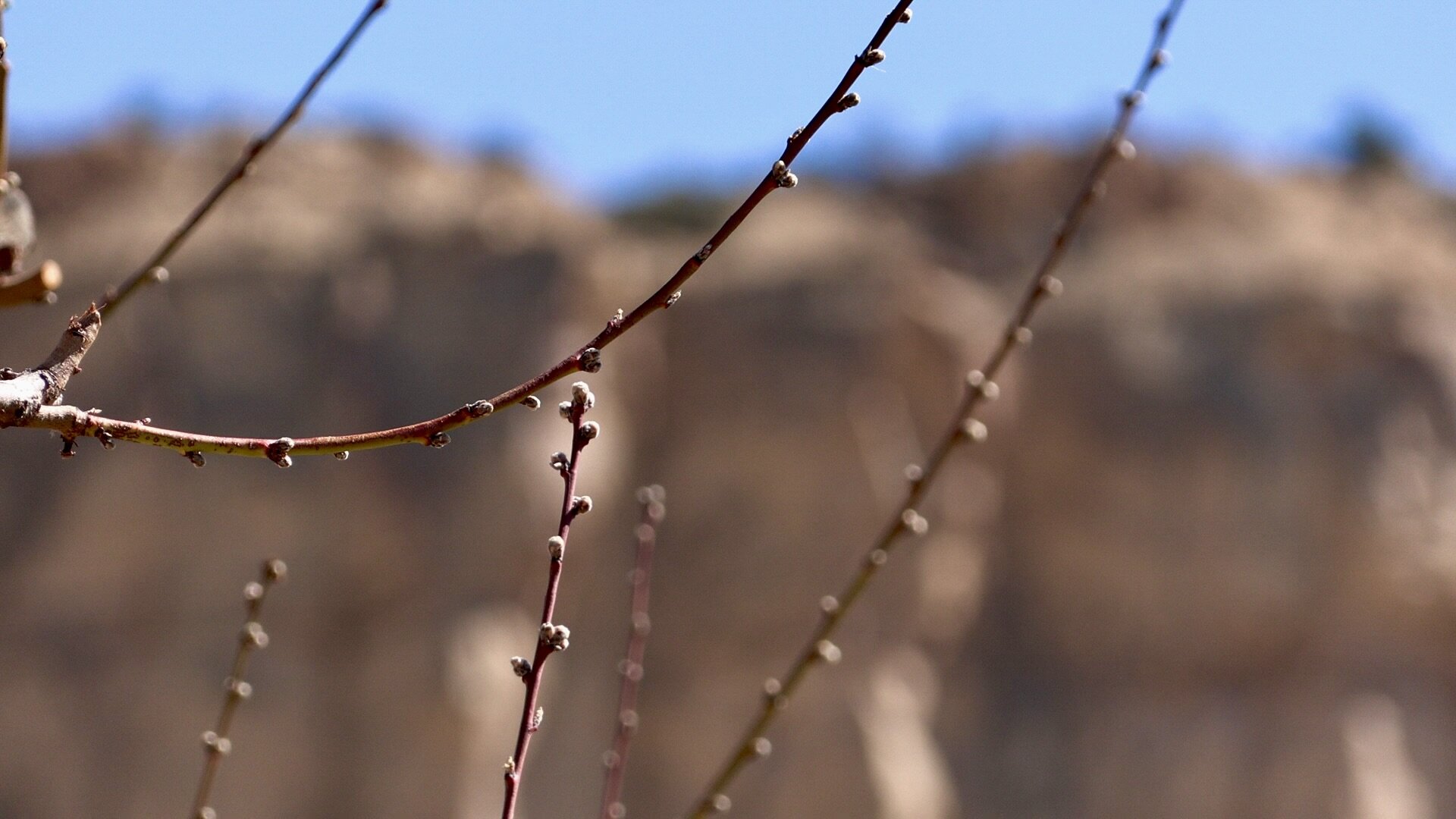Palisade’s seasonal workers lend each other a helping hand at La Plaza

PALISADE, Colo. — After decades as Child and Migrant Services, a small community organization in Palisade has a new name. But it still has the same dedication to helping agriculture workers and their families feel welcome and connected in the Grand Valley.
La Plaza, as the nonprofit is now known, serves 500 members and helps people with translation, English classes, and applying for healthcare.
Those who come to La Plaza for services fill out a membership application and pay a donation of $10 a year for individuals and $25 for families. The fee, organizers said, serves to create a sense of ownership in the organization.
“We really want their input on how we can make things better for them, so they're part of something larger,” said Amanda Perez, of the membership model at La Plaza. She’s the organization’s community navigator, helping connect migrant and immigrant families with resources in the area.
“We serve a lot of people that are here on H-2A visas, which is a guest worker program that's specific to agriculture,” said Perez.
In 2023, there were 3,008 approved H-2A workers in Colorado, according to federal immigration data. Employers must show that there aren’t enough “U.S. workers who are able, willing, qualified and available” when bringing seasonal workers here on H-2A visas, according to U.S. Citizenship and Immigration Services.
Growers like Clark Family Orchards, Kokopelli Farms and Rancho Durazno all employ H-2A workers, according to uscis.gov. Of the 34 farms in Palisade federal data is available for, there’s an average of 14 H-2A workers.
“[In Mexico] each town has a town center and it's called la plaza, it's a known gathering spot where everyone feels welcome. That's the heart of what we wanted to have here,” said Perez.
Many workers remain in the region for nine months at a time, away from their families. Luis Ángel Guzmán is from Sonora, Mexico and works at Rancho Durazno in Palisade.
“It's always a difficult thing, separating from the family,” said Guzmán in Spanish. Rocky Mountain PBS used the help of an interpreter throughout the interviews for this story.
In the small town Guzmán is from, Paredón Colorado, a lot of the jobs are in the fishing industry. Guzmán prefers growing peaches.

Peach Buds in a Rancho Duranzo orchard in Palisade, Colorado.
Photo: Joshua Vorse, Rocky Mountain PBS
“[I like] more than anything, to produce something to share with people that they can taste,” he said.
Guzmán has family members that work at Rancho Durazno with him, but not all H2-A workers have the same experience.
“It's hard to navigate in a country where you don't speak the language and you don't know what the systems are like,” said Perez.
Her own family history is full of farm work.
“My dad originally came here as an agricultural worker, working in some of the fields here. My mother came from an agriculture family as well, her father used to raise sheep and he also grew various crops on his land,” said Perez.
She says her dad didn’t have anything like La Plaza when he immigrated from Mexico.
In the 1950s, Vera Foss, Margaret Talbott and Dorothy Power wanted to improve conditions for seasonal workers and their families. That effort would eventually become Child and Migrant Services.
“They recognized that need and they were able to bring programs to them, help them connect with health care, food, daycare, it just evolved from that,” said Perez of the history of the organization.
Workers often don’t have essentials when they arrive in town, so La Plaza operates an emergency food pantry, and gives out blankets, coats and gloves. The organization also has a bike lending program, to provide reliable transportation to their members.
“They're here more than they're back at home with their families. So, just having that familiar face that they can talk to is a big help sometimes,” said Perez.
Tranquilino Soto has worked in agriculture in Palisade for almost 30 years. He says if someone needs help, the people at La Plaza will do everything they can for them.
“If you need a ride [somewhere], they’ll give you a ride,” said Soto in Spanish.
He wishes La Plaza had someone on staff to help with immigration and citizenship. When Soto applied for citizenship he had to travel to Alamosa for legal help after getting information from La Plaza. Staff often refer lawyers to their members if they want to pursue permanent legal status.
Soto works at Mosher-Talley Orchard, and enjoys living in Palisade. “There isn’t much hustle and bustle. All the people here are pure hard-working people,” he said.
In Mesa County, fruit products generate $22 million in sales each year, according to the 2023 business economic outlook from the University of Colorado Boulder.
“Migrants make economies better, they don't hurt them. They're not here to take anything away. They only add to communities no matter what their status is,” said Perez.
Joshua Vorse is a multimedia journalist at Rocky Mountain PBS. joshuavorse@rmpbs.org